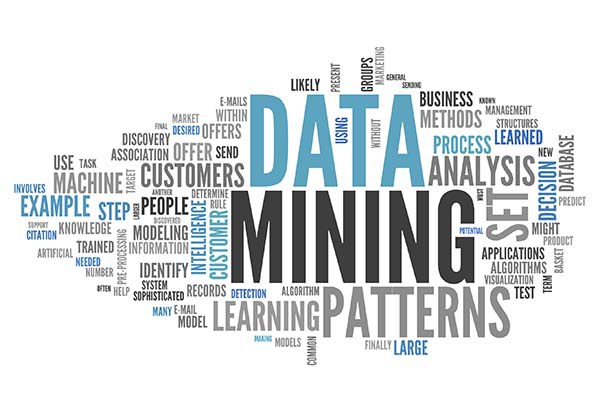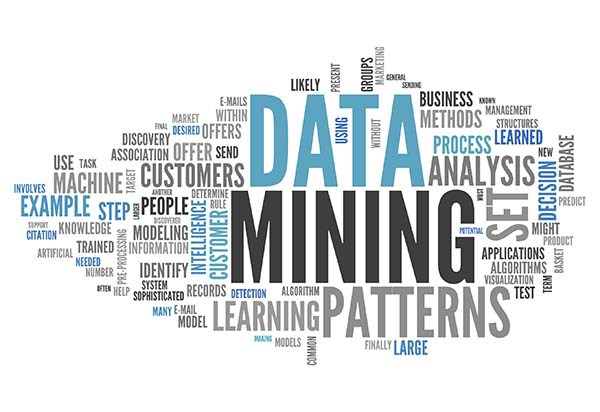 I am not a big user or a big fan of social media. When last week’s big Facebook story broke, that the data of 50 million users had been compromised by Cambridge Analytica, I was reminded of how different things are from the earlier days of the dot-com era. Every week, back then, it seemed a new site was coming out that did something useful or not. Then they would make a ton of money from some investor on the basis of the technology’s promise. Product success or failure had nothing to do with the average person.
I am not a big user or a big fan of social media. When last week’s big Facebook story broke, that the data of 50 million users had been compromised by Cambridge Analytica, I was reminded of how different things are from the earlier days of the dot-com era. Every week, back then, it seemed a new site was coming out that did something useful or not. Then they would make a ton of money from some investor on the basis of the technology’s promise. Product success or failure had nothing to do with the average person.
Back then, the dot-com end-users really were tech folks like myself. People accessed these websites from a desktop because laptops cost thousands of dollars. I had a Palm Pilot with cellular; that’s right—not even 3G. For the rest of the world, they would access all of this info at work or when they came home. Not one had access on the way home on the bus or by whipping out their smartphone. Later on, and I use these terms lightly, soccer moms and hockey dads still didn’t carry state-of-the-art smartphones like the one I carry. Now that everyone carries the same phones, it’s a completely different game.
Our new era of personal smartphones gave the average person immediate access to news and apps. These apps are fun and sometimes helpful. Waze, Uber, WhatsApp, Facebook and Twitter seem critical to our daily lives. Gmail seems to be the standard for most users. Yep, that’s right: Gmail is a free app. My company and others pay for G-Suite services.
What do all the apps have in common? They are free in every way. Or are they?
I am blessed to have smart folks and family around me. My daughter Kayla (of whom I’m so proud) sent me a link to the Cambridge Analytica whistleblower article. I really knew nothing of what was going on about this. Kayla even followed up with, “You should write your column on this subject!” Next thing I heard, Facebook dropped in stock price and the creator of WhatsApp said, “#DeleteFacebook,” and that hashtag started trending. Is Mark Zuckerberg going on CNN? What just happened?
I will do my best, as I did with bitcoin, to break it down. Let’s start here: What is Facebook’s product? I asked this question to the engineers who work for me. All of them said apps or advertising.
They’re on the right track with advertising. The answer for Facebook, Twitter and Instagram is you are the product. The thought process that I figured was, “Oh yeah, because they want to sell me stuff via advertising.” Yes, but that’s not the only reason you and I are the product.
Apps and many games ask for you to log in via Facebook, or to make an offer: “Ask a Facebook friend to join this game and we will give you free coins.” Many of you Candy Crushers, you know what I am talking about. I am being very specific that Candy Crush is just my example in which Facebook users are enticed to get more Facebook friends to join the game for a reward.
Now, I have never played the game ever. I am sure the data they collect is used for legal purposes, but the way the system is set up doesn’t mean every game out there is reputable and does not use your data for unsavory purposes.
Now that I am around talented coders, I get to hear what they talk about as rumors. There are rumors that some games/apps can get access to your microphone and camera. These games would then be able to record video or eavesdrop on your conversations without you knowing. I have no clear example of actual apps that may have done this. However, I have zero doubt that this could and can be occurring.
“But my data is secure,” you might say. “No one but my friends can see my stuff.” OK, I get that if Shneur Garb gives permission for a widget app to see my profile, that’s OK, because none of my Facebook friends have their profiles public.
Hold on, Facebookers. I know you want to say, “You can’t see everything on a private Facebook page!” Is that true? Check it out. You can search for a Facebook friend’s friend and see some, though little, data about them. This term is called gleaning Facebook profiles. I have been practicing this myself; I pick a Facebook friend of mine and I can see their friends. Without having made a friend request, I can get some info about one of their friends. The data could be as little as where they went to school or their profession. This is not my day job, but I can see how a novice data miner would be able to glean profiles. I am used to this as I don’t just accept random Facebook friends, and if someone sends me a request I check them out to see if I know them.
Psychographic profiling is where data-mining companies like Cambridge Analytica could target Facebook users to political campaigns based on the data that is on your profile. The news on this is growing so quickly; I heard that maybe they used fake posts to sway voters one way or the other. The info is flying and it’s hard to keep up.
This is not that hard to grasp: Pick a Facebook friend you know and look at the pages they like. I like pages like NAS and Engadget and my friend likes Anime and cooking shows. I don’t post stuff on gun control, but one of my closest friends does. Looking at the three of us, who might be the best person to vote for a president who is aligned with my political views? Where do we live, based on what local businesses we like? What professions are we in? Are we married? How old are we? What colleges did we attend? Even something simple as the cars we drive. Think SUV or a Prius.
This is called data mining. Apps can provide a ton of info for data mining. Remember a time when drug companies would fill our inboxes with medications we would never use or need? We would immediately delete those emails. Why? Those were spam or blast emails; they were just throwing them out there, playing the number games.
However, it is nice when you are about to buy a sefer and somehow get a coupon that you gladly use. Waze gives you an ad for a 7-Eleven just when you really need a Big Gulp. That is proper and legitimate data mining/research, or at least you can generally understand how they got the info that you were driving around for three hours and were likely pretty thirsty.
However, I am putting out a disclaimer for my Jewish Link readers. This is my personal take on this. Social media companies like Facebook, Twitter, and Instagram have made billions on the product, which is us. I get that there will be some exposure that anyone can see by browsing our profiles. I get that Facebook is going to give access to research companies that will pay Facebook for our data. But there has to be some accountability on how those companies have access to the profiles and what their plan is to do with the data. One thing is for sure: there has to be some better way to educate the end users that their data might be shared with companies and they should know the risks.
Be forewarned that Facebook and the like are reputable companies and will do their best, we hope, to protect our data. If you grab some random game/app and it asks, “Can we access your contacts?”—please, ask yourself why would a game need access to your contacts? By the way, you can say no. The game or app will still install or possible not install. That should be an indicator and make you stop and think, “Hey, I was about to give full access to my contacts for a game, though the game/app installed miraculously without needing them. Do I also have to give my geolocation to an app that’s going to check my grammar?”
The data analytics race has begun; I don’t want anyone to read my column and think all of this data mining or analytics has bad intentions. On the contrary, a lot of this data could be used to create jobs, build bridges and even saves lives.
But please, take all this into consideration next time you download that app that turns your phone into a Widget sword or makes Shneur Garb’s voice sound out when you tap it (cool idea!). But then, think twice: did I just give this app permission to access all of my contacts? Is my rabbi or employer going to get a request to play a game?
Most importantly, as we approach the Passover holiday season, it’s a time for family and downtime. Talk to your children and, for that matter, parents. If they are seniors, they may not be aware that their grandchildren installed a must-have app that gives them real-time access to their stocks and bank accounts. Check everything and delete apps if you have to.
If all you took from my column was fear, then I have failed to explain the risks and benefits of analytics or data mining. Without data, so many of us would not get a new Wal-Mart or delivery from our favorite store in areas that were previously thought not profitable. Just think before you app!
Shneur Garb is a CEO, engineer, education tech guru, writer and a startup entrepreneur. Shneur is the I.T. technologist at the Gross Schechter Pesach program in Edison, New Jersey, for the third year. Shneur runs classes to guests on drones, STEM experiments, Alexa, WhatsApp, Facebook live, experiments, cord cutting, and 3D printing. Activities include Live HQ and BBQ Selfies Twitter posts. Guests have “tech time” and can ask any tech question. Tech concierge services, charging stations, printers and PC access available as well. Guests can join a daily communication schedule. This is a one-of-a-kind program.








